Most audiences at home know that the Australian World Orchestra founder and Chief Conductor Alexander Briger is the nephew of the late Sir Charles Mackerras. What is less well known is that another branch of his family tree leads to the man who murdered Rasputin.
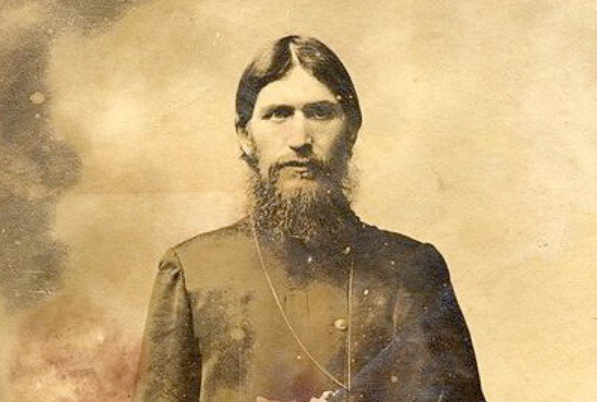
For the past three weeks, Briger has been at Moscow’s prestigious Helikon Theatre conducting the American composer Jay Reise’s opera about the so-called ‘Mad Monk’ whose behind-the-throne role as Svengali to the Russian Tsarina Alexandra led to his being eliminated on the eve of the Russian Revolution in 1917. Rasputin was commisioned by the New York City Opera in 1988 but it has really taken off in Russia where it has been staged several times – in Russian – over the last few years.
“In many ways, the style and difficulty of Rasputin reminds me of Nixon in China,” Briger told Limelight. “It was revived this year because it’s 100 years since Rasputin’s murder and therefore the Russian revolution!”
Grigori Yefimovich Rasputin was a Russian peasant and mystic, whose abilities as a faith healer led to him becoming a friend and confidant of the family of Nicholas II, the last Tsar of the Russian Empire. “The story of the opera is about his connection to the Tsar and Tsarina, and Prince Felix Yusupov’s murder of Rasputin,” says Briger. Yusupov, a flamboyant cross-dresser, was the richest man in Russia at the time. “He was married to the Tsar’s niece and owned over 60 palaces, including the big one in St Petersburg, which is now a museum and a must see for anyone visiting,” Briger explains. “It’s like Versailles!”
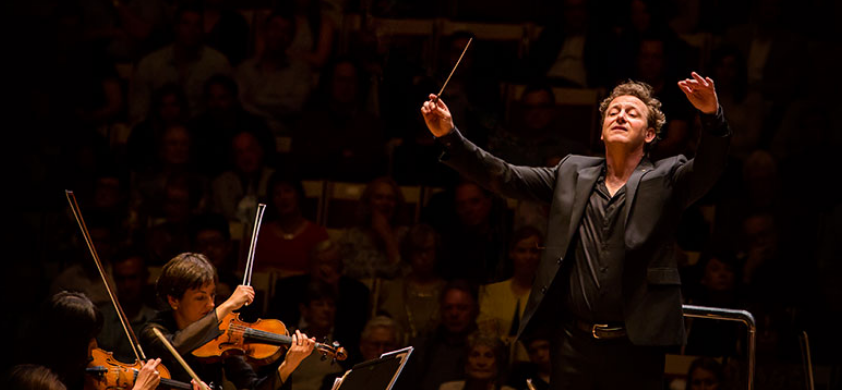 Briger conducting the Australian World Orchestra
Briger conducting the Australian World Orchestra
So far so good, but what Briger hadn’t really anticipated was the media interest that would spring up when it was discovered that he had a direct link to the Yusupov family. “On my father’s side, my grandmother was Countess Zenaide Sumarokoff-Elston (an incredibly famous family in Russia) and was the first cousin of Felix Yusupov,” he explains.
“After the Revolution Yusupov was exiled to Paris and my grandparents and father moved there as well, where my father became very close to Felix – he even paid for my father’s schooling in Paris. My father’s best friend in Sydney was Michael Roumanoff (who was really the next Tsar of Russia). Michael moved to Sydney like my father, and they would spend many hours together always speaking Russian and French.”
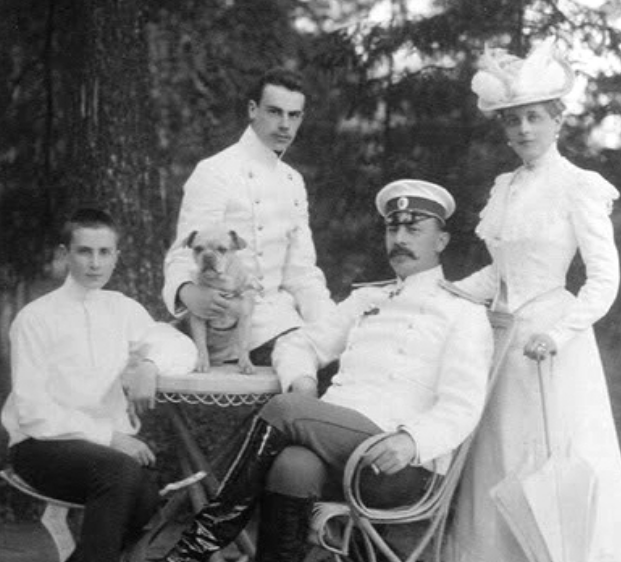 The Yusupov family in 1912: Prince Felix, Prince Nicholas, Count Felix Felixovich Sumarkov-Elston and Princess Zinaida
The Yusupov family in 1912: Prince Felix, Prince Nicholas, Count Felix Felixovich Sumarkov-Elston and Princess Zinaida
The facts of Rasputin’s murder have been shrouded in controversy for a century, but what seems certain is that Felix Yusupov and a group of politically motivated friends, including the disaffected Grand Duke Dmitri, lured Rasputin to the Moika Palace on the night of December 16, 1916. Taking him into a specially prepared sound-proof wine cellar, Yusupov offered Rasputin tea and petit fours laced with a quantity of potassium cyanide. After an hour and no apparent ill effects, Yusupov took a revolver and fired at Rasputin, who nevertheless struggled up the stairs and into the courtyard where he was shot four more times. The body was then thrown through a hole in the ice of the Malaya Nevka River.
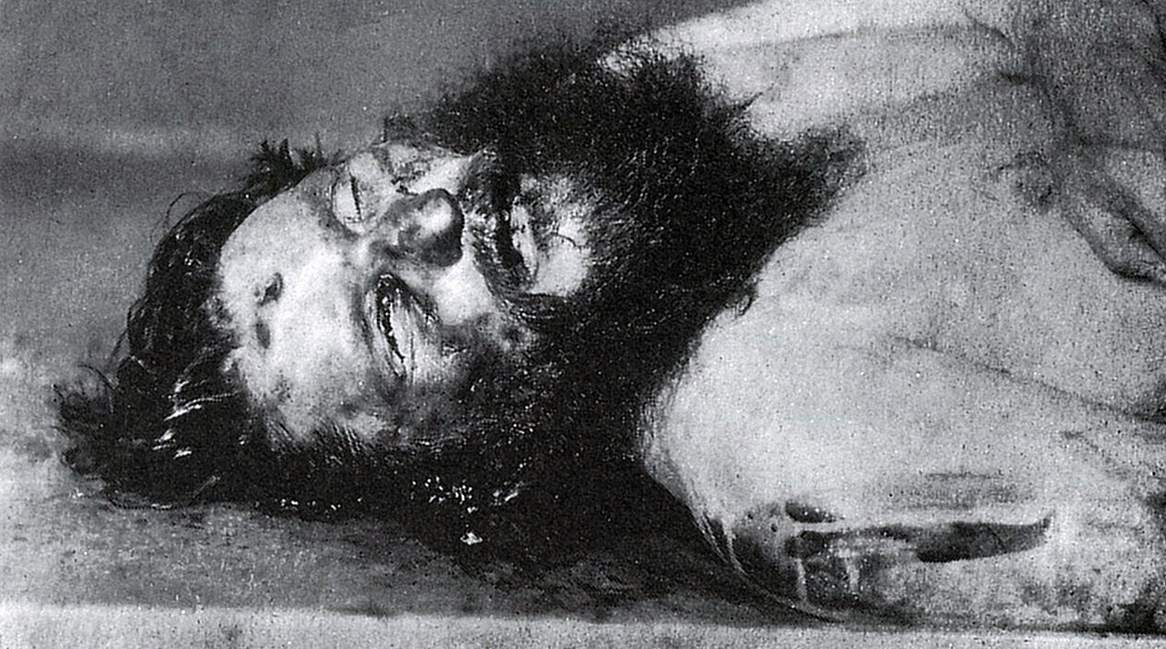 Rasputin’s autopsy photograph
Rasputin’s autopsy photograph
Briger was invited to conduct in Moscow by the Artistic Director of the Helikon, Dmitry Bertman, who had previously produced From the House of the Dead with him at the Canadian Opera Company. “When he found out my connection to the Yusupovs he simply could not believe it and insisted that I come to conduct this specific opera on the anniversary of Rasputin’s death,” says Briger. “I was incredibly excited. I had always wanted to conduct in Russia, because Russia is my family’s home, and I feel the country and its music is in my heart more than any other.”
However, once on Russian soil, the media had a field day. “I was truly treated like a prince myself,” says Briger who was met with press and TV cameras wherever he went. “They even made a 30-minute documentary on me. The incredible cast, chorus and orchestra could not believe they had a Yusupov in front of them. When the artistic director came on stage at the end and announced it, the audience went wild. I was taken to the Yusupov Palace in St Petersburg and greeted by celebrity news TV when I got off the train. There was a large press conference waiting for me and then coffee with the Arts Minister of Russia, who invited me to be part of the St Petersburg International Forum for the Arts. Afterwards, I was given a private tour of the palace by the curator, all the while with TV cameras following me.”
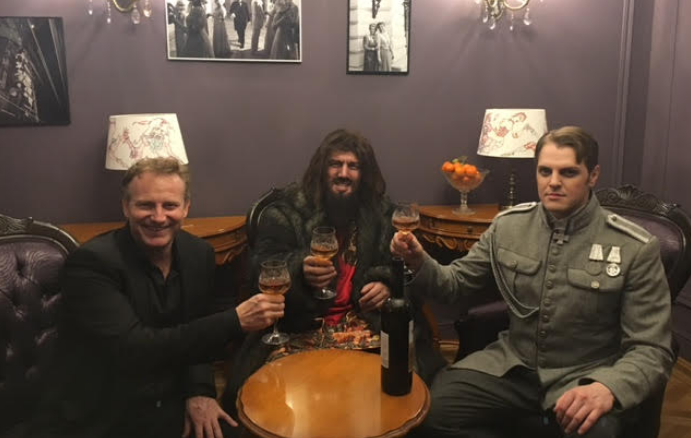
Briger backstage at the Helikon Theatre with Rasputin and Yusupov drinking Madeira (apparently the drink Yusupov used to poison Rasputin)
Briger even picked up some future work after Maestro Vladimir Fedoseyev came to see the opera and immediately invited him to conduct the Tchaikovsky Symphony Orchestra. “The whole experience was totally overwhelming,” says Briger who had no idea how Russians today feel about his family and how Yusupov and the murder of Rasputin changed the course of history.
There were two questions the press were particularly keen to ask him. Did he think Yusupov, who died in Paris in 1967, was right to murder Rasputin? And where’s the money? “Unfortunately-not with me!” Briger says, ruefully.



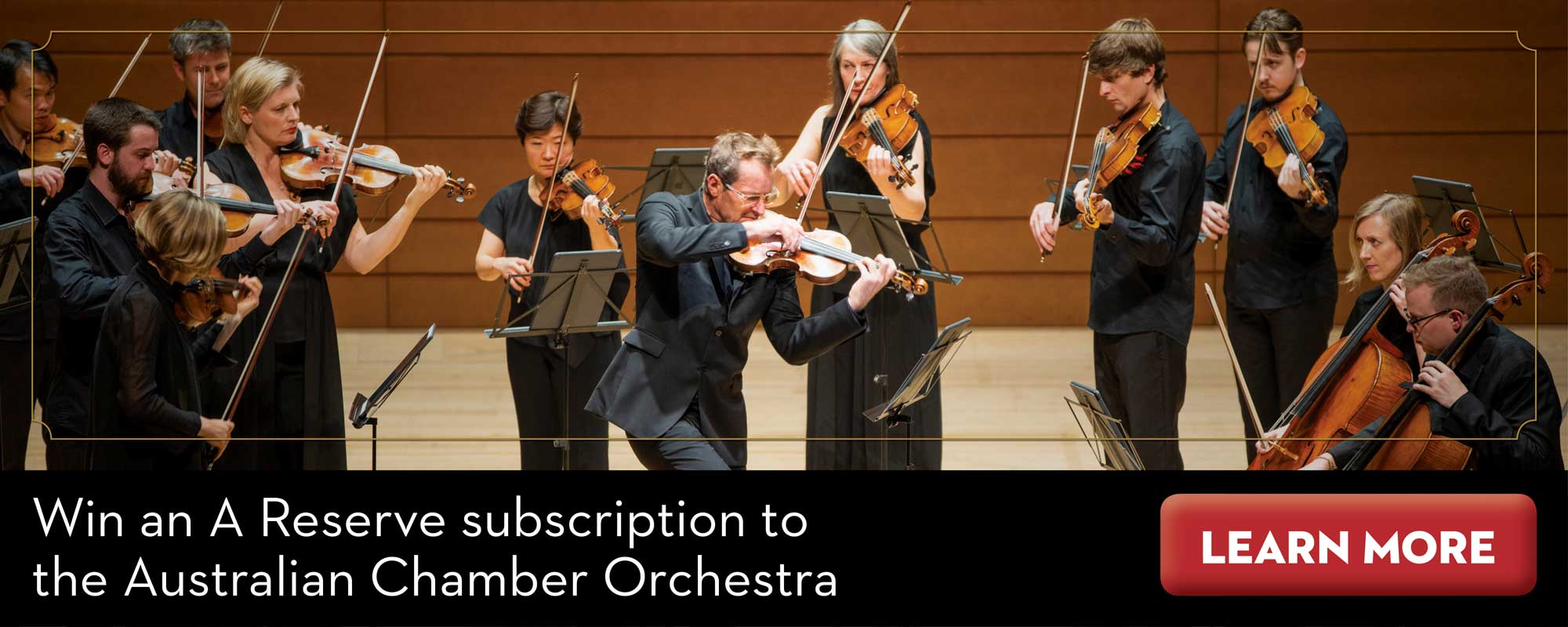








Comments
Log in to join the conversation.